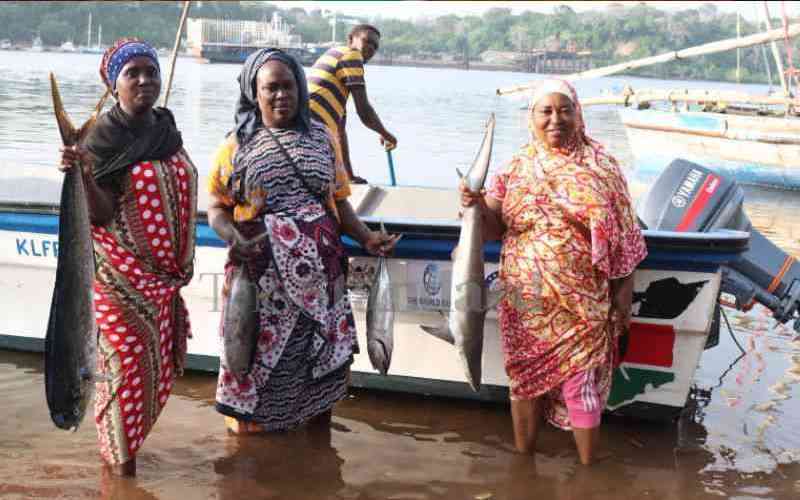×
The Standard e-Paper
Stay Informed, Even Offline

Fisherwomen have petitioned the government for support to help them acquire deep-sea fishing vessels to compete with Chinese ships fishing in Kenyan waters.
Coastal Women in Fisheries Entrepreneurship Chairperson Mercy Mghangam said they compete for a meagre catch near the shores due to lack of capacity to go deep-sea.